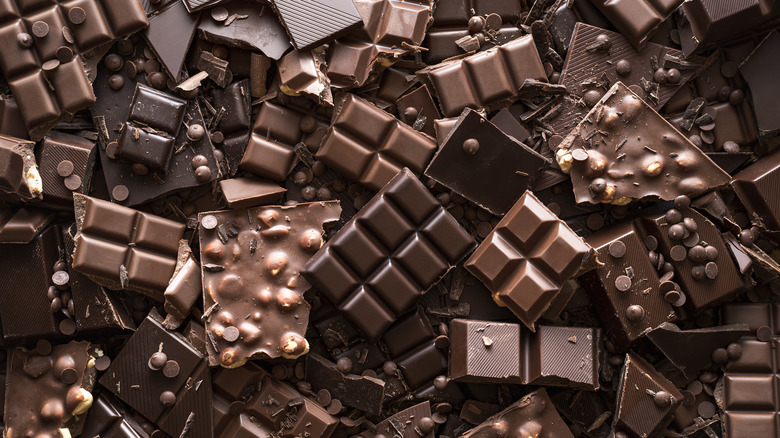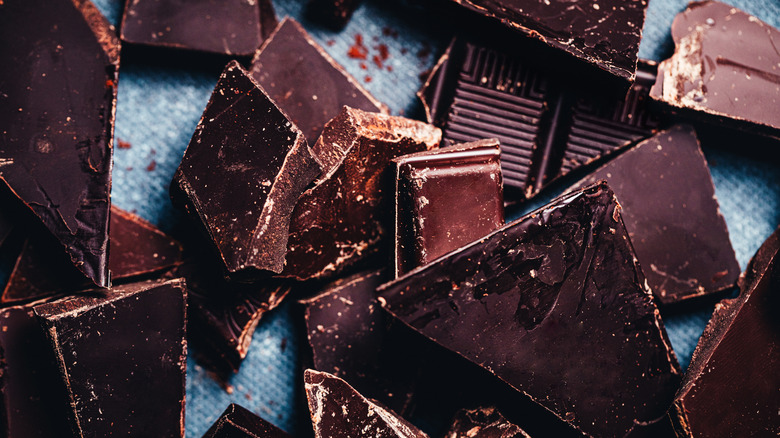We All Know Chocolate Is A Sweet Treat, But Is It Actually Considered Candy?
There's no debate about whether gummy worms or Skittles are candy — everyone would agree that they are. But what about chocolate? Chocolate tastes a whole lot different from Skittles, so are they even in the same category? In other words, is chocolate even considered candy? Sure, Reese's Peanut Butter Cups or Milky Way bars would definitely fall under the candy category, but what about just pure chocolate?
The short answer is yes, although chocolate is a lot more natural than most other candies. This is because the chocolate that we eat, such as general chocolate bars or the chocolate truffles you might find in See's Candies, have been processed and generally have had sugar added to them. For example, Lindt's Milk Chocolate Classic Recipe bar has 15 grams of sugar in a serving, 12 grams of which are added sugars. In fact, sugar is even the first ingredient listed.
A key ingredient in chocolate is cocoa butter, which is natural — it's the fat derived from cocoa beans — but it's only mildly sweet by modern standards. More often than not, sugar is then added to the mix to make chocolate more palatable for the average consumer. So, even if cocoa butter is not candy, chocolate is candy. However, there is one type of chocolate that is much less candy-like: dark chocolate. Specifically, unsweetened dark chocolate that has a high cocoa content. This creation is further away from the general idea of candy due to its lower amounts of added sugar.
It's all in a chocolate's cocoa percentage
Eating dark chocolate can purportedly have some health benefits. According to a 2021 study published in Food and Chemical Toxicology, cocoa's flavanols (which are natural compounds found in cacao beans) have antioxidant and anti-inflammatory properties that can reduce the risk of chronic diseases, including cardiovascular diseases. This complicates the question because anything with health benefits certainly doesn't sound like it could be labeled as candy, right? However, just because you see the label "dark chocolate" doesn't mean that that particular chocolate bar is good for you.
Essentially, it all comes down to a chocolate's cocoa percentage. The closer it is to 100%, the better it will be for you (and the less sweet and candy-like it will taste). Going back to Lindt's chocolate bars, its 78% Cocoa Dark Chocolate Excellence bar contains just 5 grams of added sugar, which is significantly less than its Milk Chocolate Classic bar. Taking it a step further, Lindt also has a 100% Cocoa Dark Chocolate Excellence bar that is made with zero grams of sugar. Of course, eating a 100% cocoa chocolate bar is going to be a very different experience than even the 78% bar — those 5 grams of sugar make a big difference.
Everyday Health notes that nutritionists recommend opting for dark chocolate with at least 60% cocoa, which will still be plenty sweet — and, arguably, this is still very candy-like. If you're looking to forgo candy altogether, then maybe you can try starting with a dark chocolate bar somewhere in the 65% to 75% cocoa range, then work your way up to 100% gradually.

